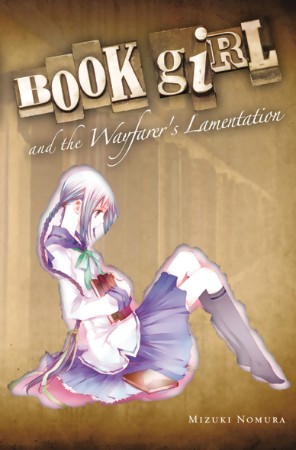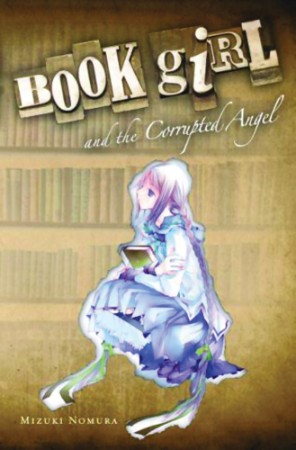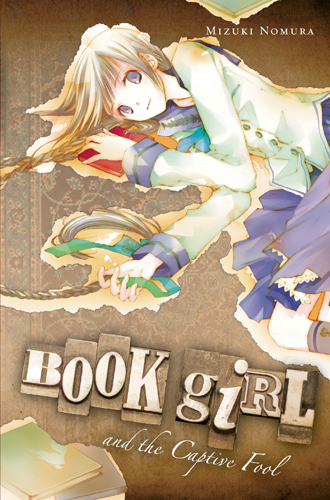By Mizuki Nomura. Released in Japan by Enterbrain. Released in North America by Yen Press.
This volume of Book Girl does not introduce a new situation of tragic consequences that resonate with our hero’s own past and causes him to grow and change a little more. We’re done with that. Instead, we tie the previous four books together and bring things full circle, as Konoha must confront his past head on, deal with the return of his objectified girl, and realize that despite all the growth he’s made in this last year, he still has quite a ways to go.
These books are all told from Konoha’s point of view, and thus sometimes things can happen around him that he is unaware of. This is especially true of this volume, but Nomura-san is very skilled at letting the reader in on things that Konoha either doesn’t know or is deliberately deluding himself about. Those who have been frustrated by Konoha’s attitude in the past are not going to find this book any easier to delve into. Indeed, as a reader I found myself identifying more with Akutagawa, who is clearly sympathetic to Konoha, but also can’t stand what he’s doing to Kotobuki (and himself). There’s a wonderful scene where Akutagawa lays everything out for Konoha to see, with an expression on his face that says “you aren’t going to believe this or care but I am doing it anyway, dammit.” When his frustration boils over into violence, it’s very cathartic.
Speaking of Kotobuki, I think I’m finally coming to like her. It’s taken a while – she was very stereotypical to start with – but as she’s opened up we’ve seen more of her inner turmoil, and here we see her risking everything in order to protect Konoha. It’s inspiring, but also rather sad, as I think by the end of the book, despite what he may say, he’s no closer to Kotobuki than he was when the book began.
And then there’s Takeda. I’d mentioned in my review of the third volume that it was rather refreshing seeing how in this series, people’s issues aren’t magically fixed by page 235. And indeed, we see that sometimes they aren’t fixed at all. Takeda still puts on a mask of happiness to hide her confusion and sorrow, and now has even taken to self-harm. It’s quite interesting how she actually takes up with Ryuto, a boy who seems to delight in girls with issues, so to speak. Even by the end of the book, after another cathartic moment, we’re not sure if she’ll be OK.
And then there’s Miu. I was predisposed to liking her because of my nature (I find myself drawn to and supporting unlikeable characters), and felt that I was correct when I read the scene with a young Miu meeting Konoha, and telling him a story. Konoha’s narration of it is beautiful, and you believe that it shows you the real Asakura beneath all the anger, hatred and manipulation we’ve seen. And then, later on, that beautiful scene is thrown back at us, as we get it from Miu’s point of view and see the horrible pedestal Konoha has placed her on, leading to writer’s block and her desperate cribbing of stories from other sources. I’m not sure it makes up for everything she’s done, but at least I look forward to seeing if she can finally move on and begin to heal.
I haven’t talked all that much about the book as a book, but that’s mostly as I’m so drawn into the character’s lives. It’s a good book. Frustrating at times, but that’s the frustration of a reader towards the characters doing dumb things, not the author. I do wish we’d had more of Maki – she’s the only supporting character whose story didn’t tie into the others, and her presence at the end seems to be nothing more than ‘I need the whole cast here’ – but she apparently features heavily in Book 6, so I’ll let it go. I also haven’t mentioned Tohko, the titular Book Girl, but that’s because Tohko’s story is still so diffuse. Yes, she’s studying to get into university – barely – but she’s the one who helps others, the detective who puts everything together. We haven’t had her own story yet – clearly that will be Books 7 and 8, the finale. For now, all we get are suggestions and small tastes.





